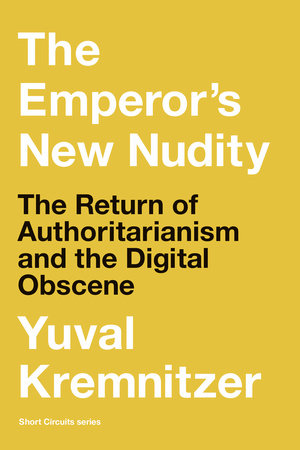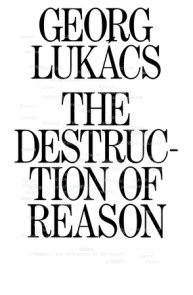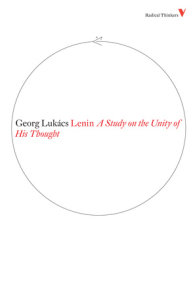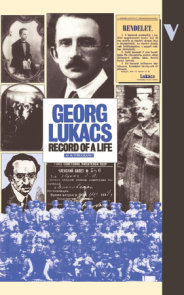

A Defence of History and Class Consciousness
By Georg Lukacs
Introduction by John Rees
Afterword by Slavoj Zizek
Translated by Esther Leslie
By Georg Lukacs
Introduction by John Rees
Afterword by Slavoj Zizek
Translated by Esther Leslie
Category: Politics | Literary Criticism

-
$19.95
Aug 17, 2002 | ISBN 9781859843703
Buy the Paperback:
YOU MAY ALSO LIKE

The Emperor’s New Nudity

Airplane Mode

Beyond the Call of Duty

Project Censored’s State of the Free Press 2025

A Just Transition for All

The Empire of Civil Society

The Politics Book

Against the Crisis

Who Gets Believed?
Praise
“Lukács’s polemic tells of a dogmatic, corrupt, ultimately murderous period in the transition from Stalinism … it tells also of the passion, so vividly Judaic and Central European, for the life and clash of ideas.”
—George Steiner, Times Literary Supplement
“We almost hear Lenin himself murmuring, it happens that for eighty years no Marxist has ever properly understood History and Class Consciousness! Splendidly translated here by Esther Leslie and contextualized by an introduction by John Rees and a conclusion by Slavoj Žižek (both of them stimulating and suggestive).”
—Fredric Jameson, Radical Philosophy
Lukacs’ book History and Class Consciousness leads Marx back to Hegel to a significant extent, and leads the latter meaningfully beyond himself; here, too, a metaphysics of understanding oneself in existence, of raising our head, our reality above the crooked process, traces its dialectical arcs.”
—Ernst Bloch
“History and Class Consciousness, a work of genius inseparable from the brief moment when the Bolshevik Revolution seemed to be the beginning of a world revolution.”
—Etienne Balibar
“For Lukacs, Marxism is, or should be, this integral philosophy without dogma. Weber understood materialism as an attempt to deduce all culture from economics. For Lukacs, it is a way of saying that the relations among men are not the sum of personal acts or personal decisions, but pass through things, the anonymous roles, the common situations, and the institutions where men have projected so much of themselves that their fate is now played out outside them. The exceptional merit of Lukacs—which makes his book, even today, a philosophical one—is precisely that his philosophy was not by implication to be understood as dogma but was to be practiced, that it did not serve to ‘prepare’ history, and that it was the very chain of history grasped in human experience. His philosophical reading of history brought to light, behind the prose of everyday existence, a recovery of the self by itself which is the definition of subjectivity.”
—Maurice Merleau-Ponty
“On the level of currents of thought we must no doubt go back to Lukacs, whose History and Class Consciousness was already raising questions to do with a new subjectivity.”
—Gilles Deleuze
“Lukács’s critique of ‘reification’ in History and Class Consciousness shows the path toward a philosophy of social praxis, according to which social objectivity must be understood as the creation of human beings themselves in the process of reproducing their material and cultural worlds.”
—Seyla Benhabib
“I can still remember the way that first page of Lukács made my head spin. The cosmic chutzpah of the man was staggering. I’d known plenty of Marxists who were willing to admit that Marx might be wrong about many tjings; in spite of this, they said, he was right about the essential things and that was why they were Marxists. Now here was a Marxist saying that Marx might be wrong about everything, and he couldn’t care less, that the truth of Marxism was independent of anything that Marx said about the world, and hence that nothing in the world could ever refute it; and that as the essence not merely of Marxist truth, but of Marxist Orthodoxy.”
—Marshall Berman
“The charter document of Hegelian Marxism.”
—Martin Jay
21 Books You’ve Been Meaning to Read
Just for joining you’ll get personalized recommendations on your dashboard daily and features only for members.
Find Out More Join Now Sign In














